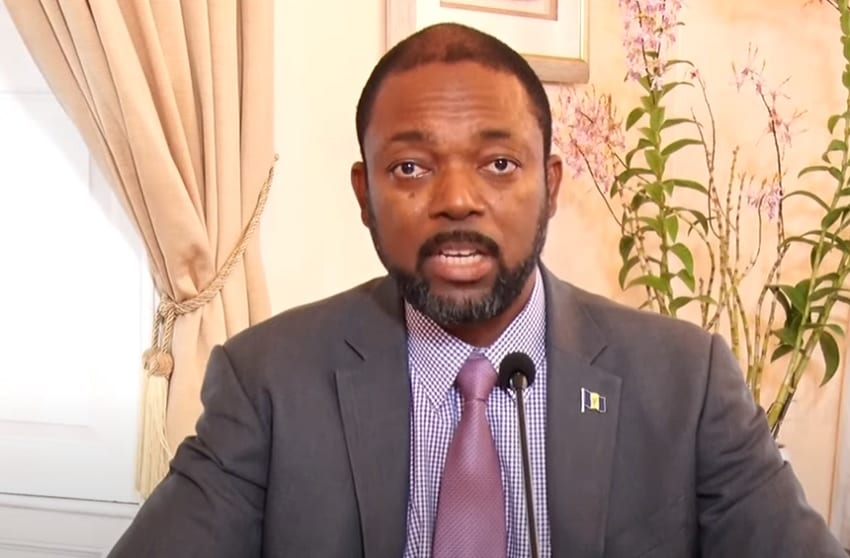
Global partners who will be participating in the 15th Session of the United Nations Conference on Trade and Development (UNCTAD XV) have been reminded that the COVID-19 pandemic is a game-changer and requires them to rethink the way they work and function.
This was the key message conveyed today by Barbados’ Minister of Labour and Social Partnership Relations, Colin Jordan, as he addressed the first in a series of online consultations with Civil Society, in the lead up to the conference slated for October this year.
This is the month when Barbados is poised to take up the mantle of UNCTAD Chair and for the organisation’s next quadrennium. The conference will be held under the theme: From Inequality and Vulnerability to Prosperity for All.
Minister Jordan, who highlighted Barbados’ model of social dialoguing, said: “At the most basic of human interaction, it has caused us to rethink and recalibrate the way we work; the way we learn and the way we socialise on a day-to-day basis. But, it has also brought to the fore more fundamental and deep-rooted issues relating to how our world and our societies function.
“Like the global environmental crisis of climate change, which for small-island developing states like ours is an existential threat, the COVID-19 global health crisis has shone a spotlight on international social responsibility, collective action for the common good and the urgent need to bridge the ever-expanding wealth, health and digital divides. One has to look no further than our early challenges in acquiring ventilators and current challenges in acquiring vaccines, with neither due to a lack of trying or a lack of funding.”
While pointing out that in very poignant and tangible ways the pandemic has demonstrated exactly how inter-dependent we really are, he stressed the critical need for a “whole-of-society” approach to surmount challenges.
Minister Jordan told the forum this approach had become a hallmark of governance in Barbados with Government having long recognised the intrinsic value of social dialogue as a vehicle for social and economic development.

Commending the island’s Social Partnership model to his counterparts, he noted it was born out of the economic crisis of the early 1990’s and comprised workers’ organisations, private enterprise and government. He said building and expanding on the model, Government had, since 2019, established the Social Justice Committee.
He explained that this mechanism is a means by which non-governmental organisations and civil society organisations are involved in the decision-making process.
Mr. Jordan noted that the goal of the Social Justice Committee is to assist in efforts to create a society where no one is marginalised, opportunities available to all, and all persons are physically and psychologically safe and secure.
Mr. Jordan added that Government facilitates the sector in doing its work, and through a shared common goal, seeks “to build a just and equitable society that we are all looking for, and to do so together, collectively”.
The Labour Minister acknowledged that Civil Society played a critical role in helping to shape policy at the macro level and provides checks and balances to ensure policy coherence and guarantee timely implementation.
The Civil Society Organisations Forum is one of three processes that will form an integral part of the UNCTAD main Conference.
The input of Civil Society into both the preparatory work and the deliberations of UNCTAD XV is therefore considered a necessary exercise.
